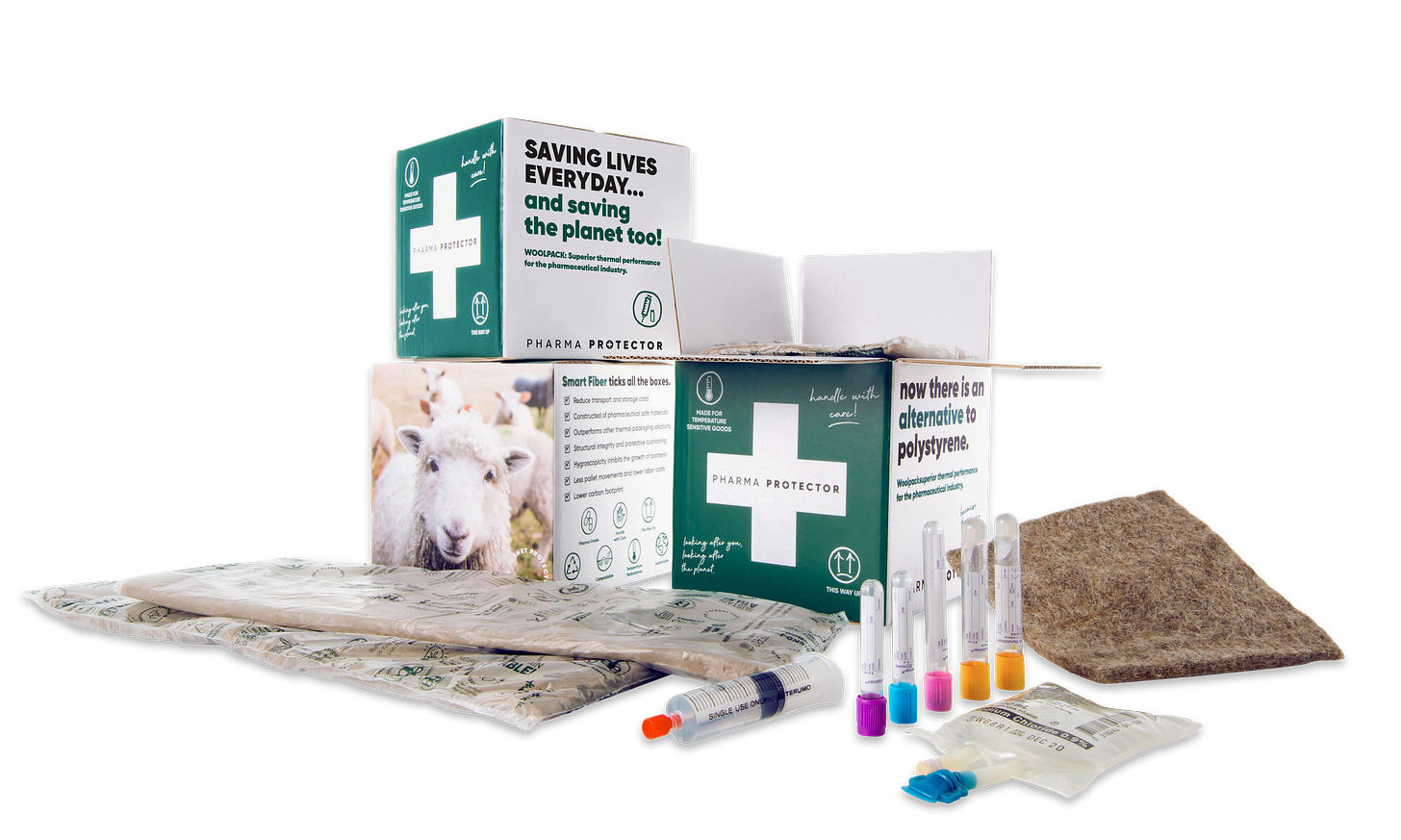💡Investment Notes: Why we invested in Planet Protector
Eliminating Styrofoam from our planet with cost effective, sustainable, eco-friendly packaging made from upcycled wool waste.
Many of us already know that Styrofoam (a.k.a “Expanded Polystyrene (EPS)”) is bad for our environment. Its pervasiveness in our lives, and persistence in the environment, make it a huge source of pollution. When it ends up in the ocean in the form of microplastics, marine life often mistake it for food and ingest it unknowingly.
Beyond pollution, the manufacturing process of EPS is also a significant source of hydrofluorocarbons (HFC), greenhouse gases that are known to be thousands of times more damaging for our climate than carbon dioxide. To be specific, HFCs have designated global warming potential of 1,370 to 4,180, (where CO2 has the potential of 1 and Methane has 34).
To top it all off, its bad for human health, too. Linked to cancer and inflammatory diseases, styrene has been classified by the International Agency for Research on Cancer, a part of the World Health Organization, as a Group 2B carcinogen.
And yet, despite these threats to both human and environmental health, our global production capacity of expandable polystyrene (EPS) amounts to at least 10.59 million metric tons per year.
Love it or hate it, Styrofoam has many properties that we find useful for packaging and delivery - superior thermal resistance, light-weight, and waterproof, it especially great for keeping seafood and other temperature-sensitive products like medicine fresh and viable. EPS can also be used as a packaging lining which is light weight and provides insulation for delivery of goods.
The double-edged sword of EPS harming the environment but also being very useful leaves significant room for innovation.
Based in Australia, Planet Protector Packaging (PPP) is one company tackling the EPS problem. It has developed wool-based packaging materials, with a patented design of wool blend, thickness and composition that make it suitable replacements to plastic-based fillers or liners.
In particular, Woolpack has low thermal conductivity, high thermal resistance, low permeability, and is lightweight, with the ability to keep products like pharmaceuticals at -80°C to +25°C. for 72 hours. They’re already FSANZ (Food Standards Australia New Zealand) and IATA (air cargo) compliant, and have replaced over 15M polystyrene boxes.
Here are 3 key reasons why we invested.
1. Compelling unit economics and path to EBITDA positivity
PPP has already been able to achieve near unit costs to EPS, while maintaining a strong gross margin. They are looking to improve their margins further as they scale their operations at a new facility in Altona, Victoria, Australia, providing a clear line of sight to becoming EBITDA positive.
2. Strong regulatory push factors, driving strong market potential for Planet Protector’s products
EPS has already been banned in several countries including Australia, New Zealand, parts of Europe, India and parts of the USA. In particular, Australia has started banning wider use of EPS in several functions, mainly in retail and food packaging.
These bans create clear demand gaps that need to be filled, and PPP, which is based in Australia, is perfectly positioned to capture the market.
In the longer term, Extended Producer Responsibility laws in Europe will continue to driving the change to sustainable and validated packaging.
3. Good customer retention and rising sales volume
In the last 4 years, PPP has shown good track records of stable revenues. During Covid, it experienced significant customer growth as their product was used to facilitate vaccine deliveries, and PPP has proven its ability to sustain sales beyond trigger events like the pandemic, with doubling average contract sizes year-on-year.
This all was achieved with a very lean sales team - which is all to say we have confidence in their ability to continue their trajectory of rapid growth as more resources are made available to the company.
4. Impact across the Triple Bottom Line
Beyond the obvious benefits of reducing greenhouse gas emissions and preventing negative health impacts, PPP brings about more environmental and social benefits than first meets the eye: PPP’s source material is waste wool (such as from sheep reared for meat), which can be too coarse to be usable for applications like textiles. Without the PPP use case, such wool is typically burnt or buried in landfills, because processing it is expensive and labour-intensive. These disposal methods have their own environmental repercussions associated with them, which PPP’s products help circumvent, with 8,000 tonnes of wool already diverted from the landfill.
They provide an income/generate new revenues for sheep farmers for their coarse wool; strengthening rural communities and reinvigorating the wool industry. To date, $7M has been paid out in increased income for farmers. As Australian farmers have been increasingly experience financial and emotional distress as a result of climatic natural disasters, opportunities like these have an important role to play to address such issues.
We’re excited to be supporting Planet Protector Packaging, whose impact stretches across emissions, pollution, and social impact. As always, thanks for reading.
Interested to learn more? Read more about Planet Protector at their website and Linkedin, as well as their feature on the Silverstrand Linkedin.
If you enjoyed these notes, please consider sharing it with your network and subscribing for future updates.







